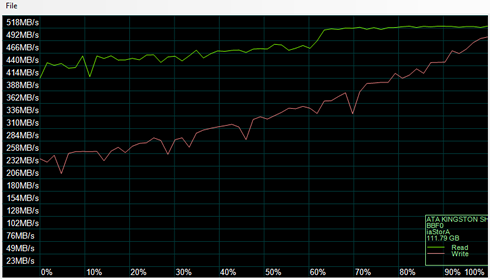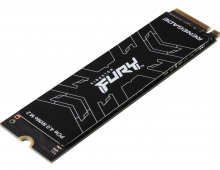Kingston HyperX 3K SSD 120GB Na`Vi Edition
6. AS SSD
We move on with the AS SSD benchmark, which contains five synthetic as well as three practical tests. The synthetic tests determine the sequential and the random read / write performance of an SSD. These tests are carried out without using the operating system's cache. The Seq-test measures how long it takes to read and write an 1GB file. Most importantly, this sequential benchmark uses incompressible data for all of its transfers.
The 4K benchmark tests the read and write performance for random 4K blocks. The 4K-64-THRD-test corresponds to the 4K procedure except that here the read and write operations are distributed on 64 threads:
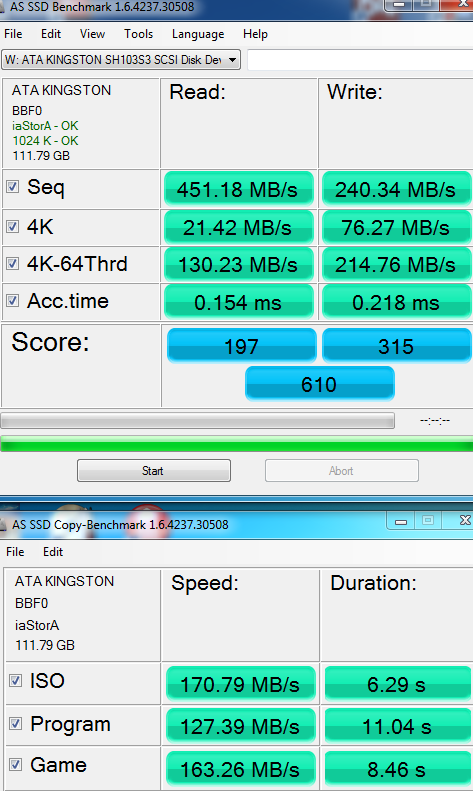
The M500's performance in sequential reading with incompressible test was 451.18 MB/s, which is a good performance but not the best we have seen from an SSD.
The sequential writing speed with incompressible files was just 240.34MB/s (average):
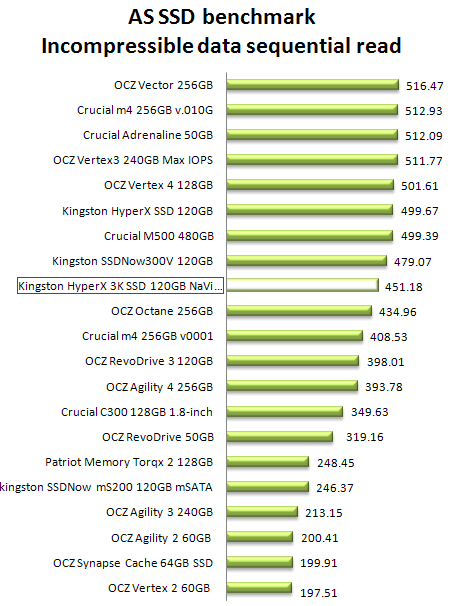
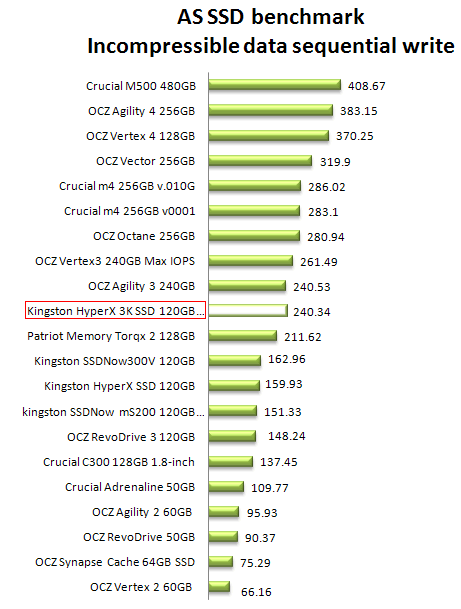
At the 4K random reading tests, the drive is positioned somewhere in the middle of the chart below, with an average reading speed of 21.42MB/s.
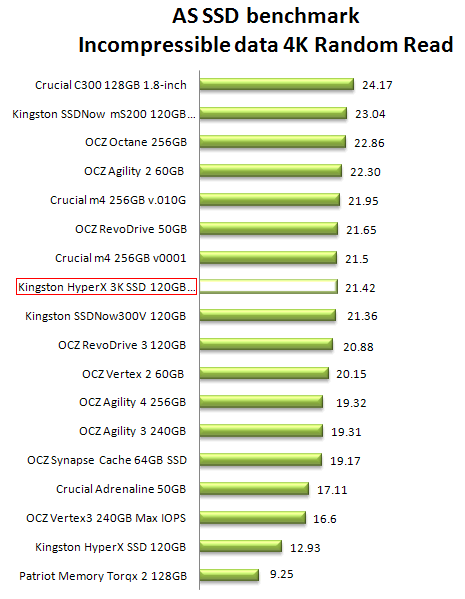
But the 120GB HyperX 3K SSD - Na`Vi Edition drive was surprisingly fast in the 4K random writing tests with 76.26 MB/s:
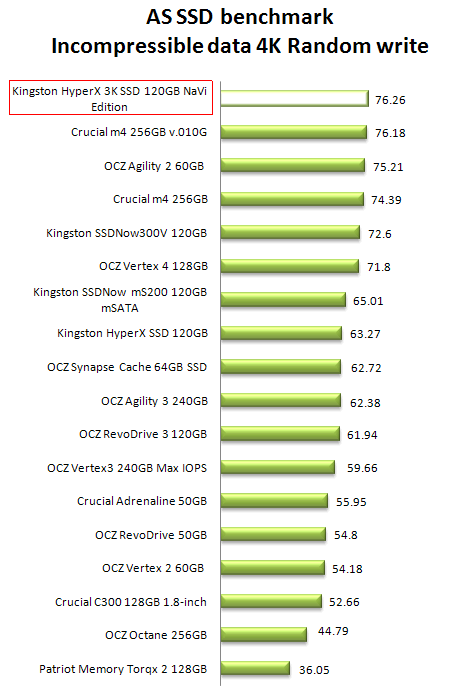
Multi-threaded requests for random reading of 4K incompressible files was more demanding for the drive:
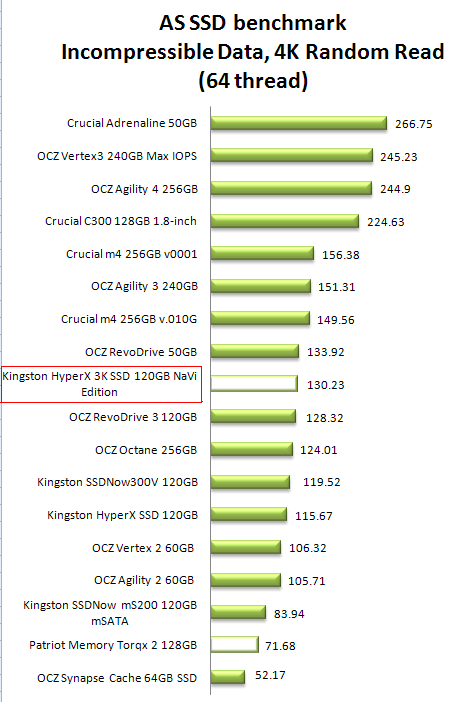
On the other hand, random writing of 4K incompressible files was pretty fast:
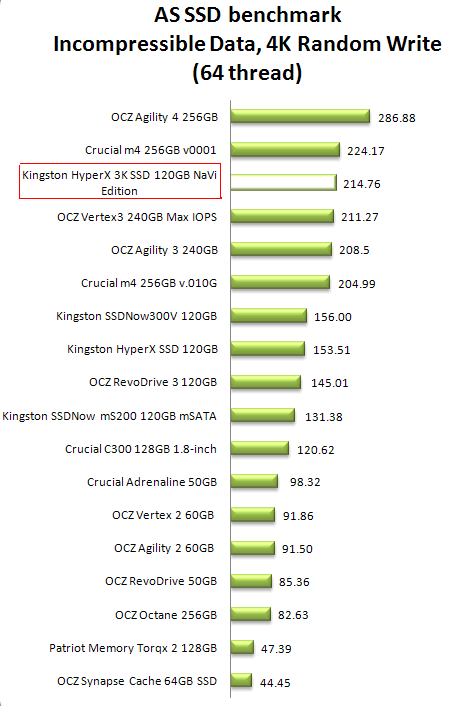
In the following graph you see how the 120GB HyperX 3K SSD - Na`Vi Edition drive reads and writes files, which have been partially of fully compressed. It is obvious that the both reading and writing speeds heavily depend on level of file compression, and are maximized when the drive deals with fully compressible data. Reading is stabilized after the 65% mark, as you see below:
